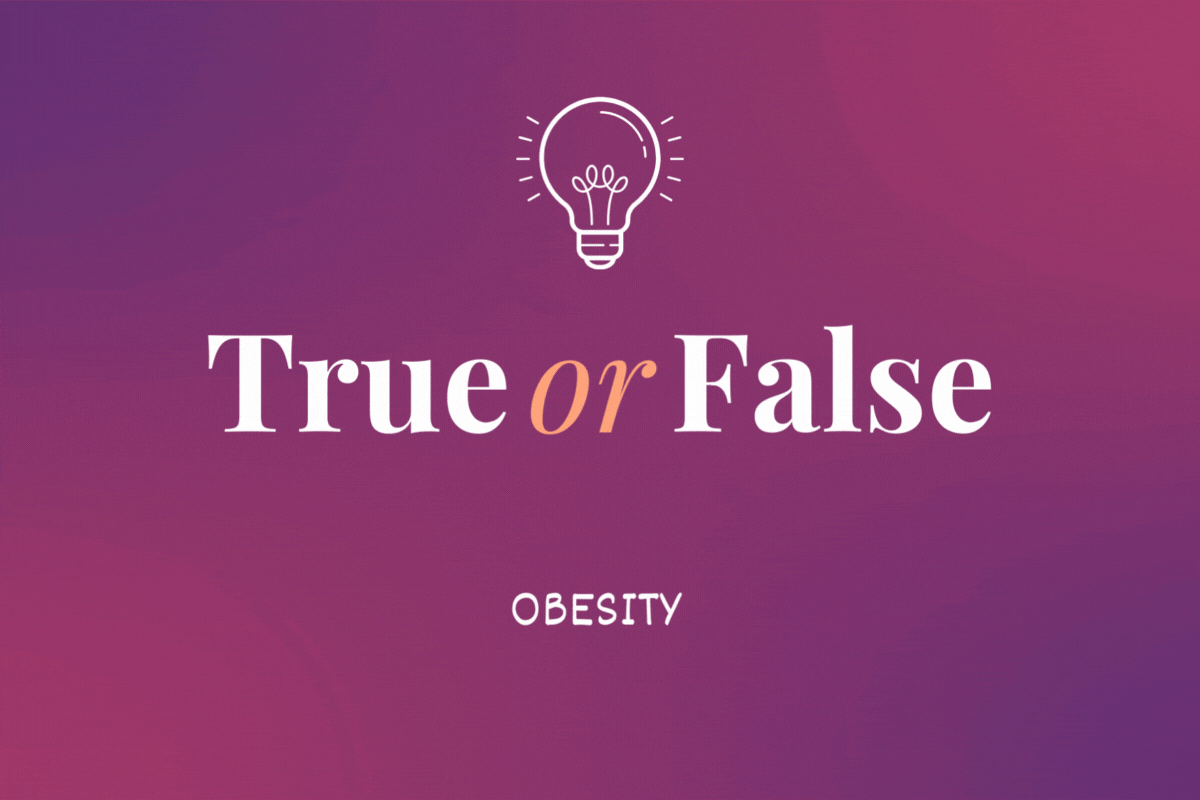
True or False? Obesity
Is obesity a disease? Take our quiz to learn more about the facts about obesity.
Jun 17, 2024
Conditions & Treatments
Is obesity a disease? Take our quiz to learn more about the facts about obesity.
Obesity is a complex disease. It’s typically defined as having too much body mass, which can cause serious health problems, including Type 2 diabetes, heart disease and certain types of cancer. Although it is not a perfect measure, healthcare providers (HCPs) use an individual’s body mass index (BMI), along with other indicators, to diagnose both the disease as well as the severity of the disease.
About 4 out of 10 people in the U.S. are living with obesity. And women and people assigned female at birth are more likely to have severe obesity (a BMI of 40 or higher) compared to people assigned male at birth.
Over the years, there’s been an increase in public awareness about the various causes of obesity as well as the treatment options available for the disease. But there are still many misconceptions out there.
Take our quiz to see how much you know about obesity and learn more about this complicated disease.
Correct
Incorrect
Correct
Incorrect
Correct
Incorrect
Correct
Incorrect
Correct
Incorrect
Correct
Incorrect
Help Us Increase Access to Obesity Treatment >>
This educational resource was created with support from Novo Nordisk, a member of the HealthyWomen Corporate Advisory Council.